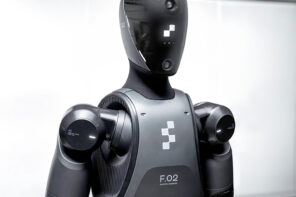While AI and other technological advancements have disrupted and transformed many industries – from ride sharing to warehousing – many areas remain untouched and largely dated. A prime example of this is in the education space. While the amount of technology used in the classroom has risen drastically, the fundamental concept of classroom learning has not. Visionaries see the future of education changing, and hopefully improving, through the application of artificial intelligence to enhance or replace traditional learning methods.
A promising start to the technological revolution of education is located in the heart of Montreal. Korbit AI is a venture-backed startup focused on creating an effective tutor that is powered by machine learning to give each student a personalized experience. The aim is to provide students access to high quality learning materials, making the process efficient by tailoring it to the student’s individual needs. By applying artificial intelligence, the costs of such a customized program wouldn’t necessarily have to be very high. Private tutors can cost anywhere from $25 up to $80 and even higher. However, a virtual tutor powered by code could be applied to an endless amount of students and once and drive these costs even lower. While Korbit remains an early stage company, over 2 million dollars of seed funding has guaranteed them a shot at revolutionizing the education and tutoring space.
“The question remains about whether these programs can replicate (or improve upon) the results of a human tutor or teacher.”
However, there are drawbacks to implementing more technology in the classroom. A baseline example is that of taking notes. It has been demonstrated that students who take notes on paper tend to perform better on exams compared to those who use a laptop. While it is a rudimentary example, it does show how technology may seem more effective while the results don’t necessarily back it. Another concern is that of adaptation. Many higher education institutions dump money into new technology systems in hopes that they will transform the experiences of professors and students, yet these fail for a number of reasons. Integration can be timely and expensive, all for something the students may not like to use or the professors and teachers refuse to adapt to. The barriers to implementing technology are numerous, but as has been shown with several other industries, it doesn’t mean it isn’t destined to happen.
Despite the failures and criticisms, there is research that does suggest that personalized learning has improved student achievement in some contexts. However, these results have not necessarily replicated using AI or other technology-based education systems. The question remains about whether these programs can replicate (or improve upon) the results of a human tutor or teacher. While simply stating the words “Artificial Intelligence” or “Machine Learning” lends credibility these days, it isn’t always what it’s propped up to be. Only time, and many more attempts, will be able to tell whether technology and AI will truly take over the education space.
However, the pursuit to improve and make high quality education more accessible is commendable. Korbit AI exemplifies these ideals well, hoping to offer free courses in public health and climate change using their technology. So long as the end result is improving education quality, there’s no harm in trying.








